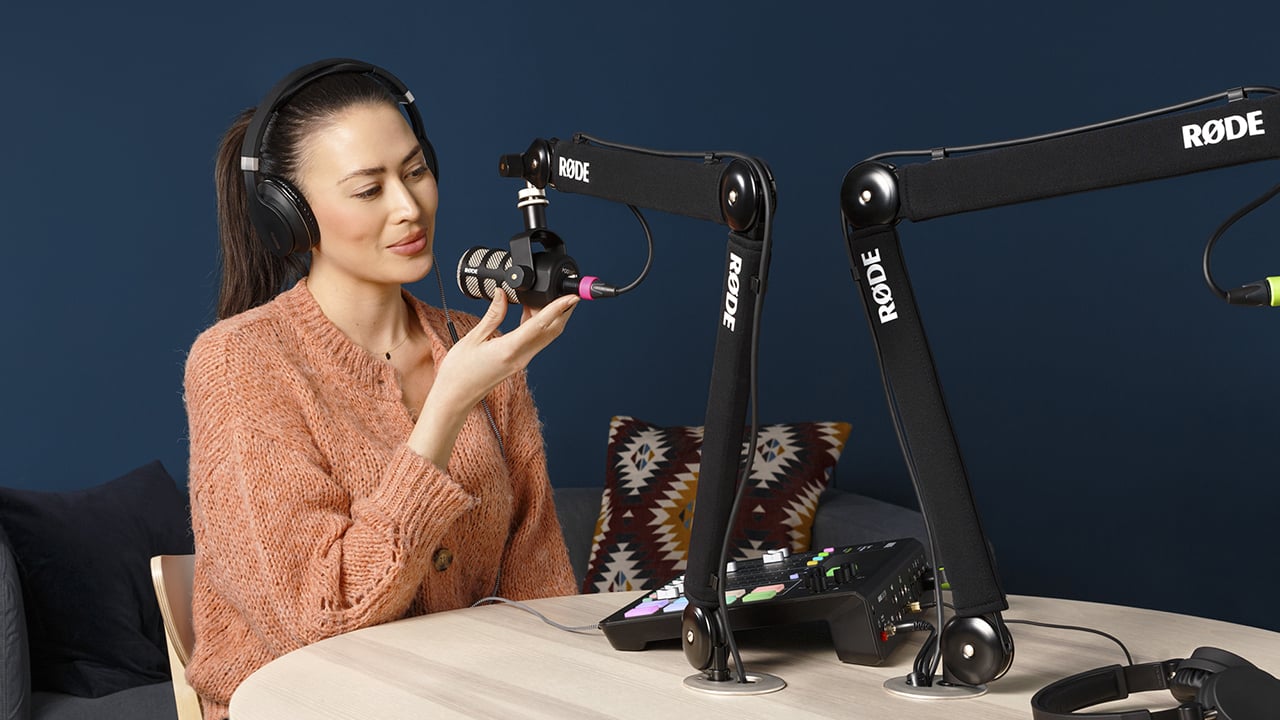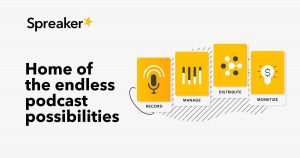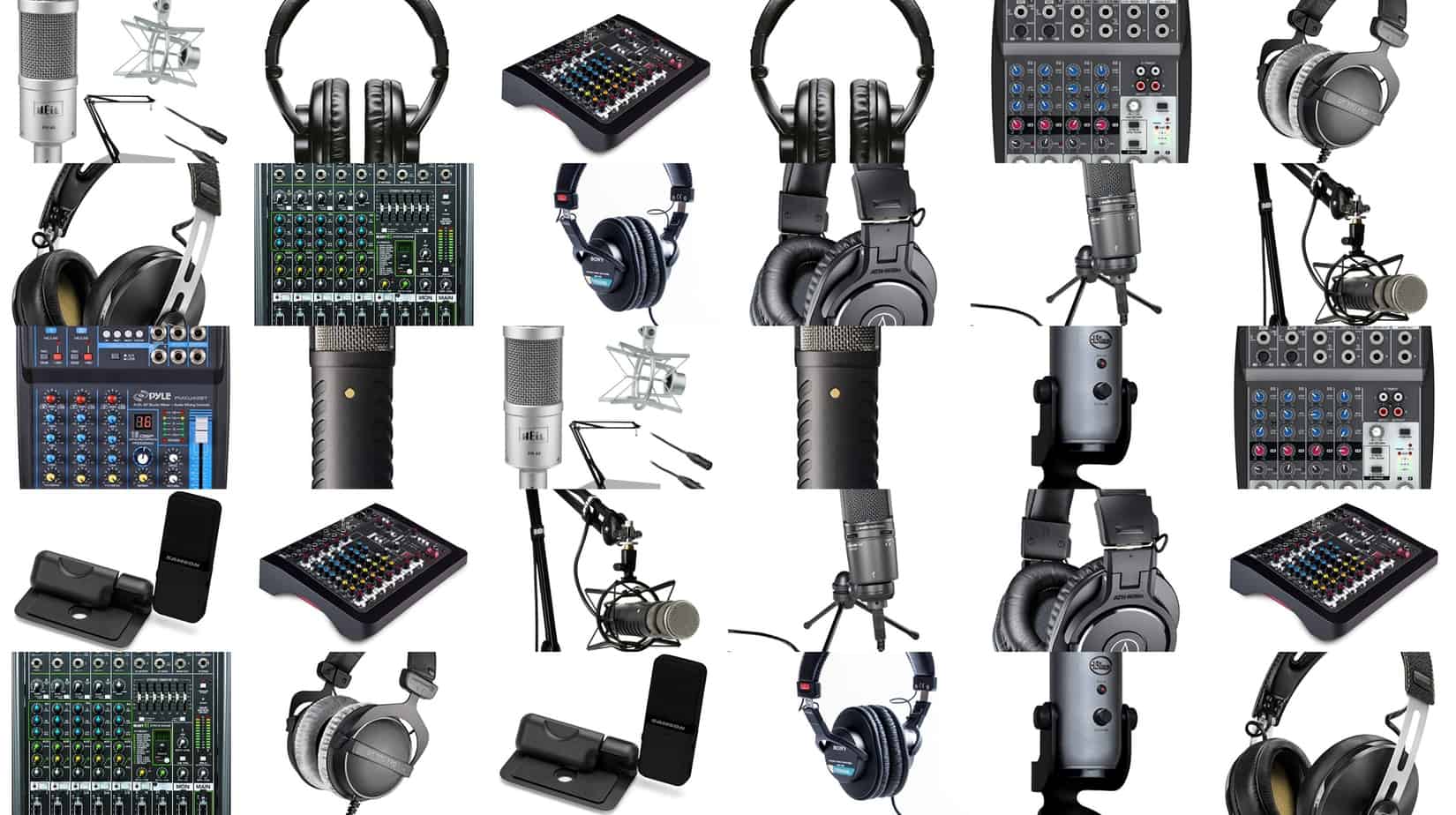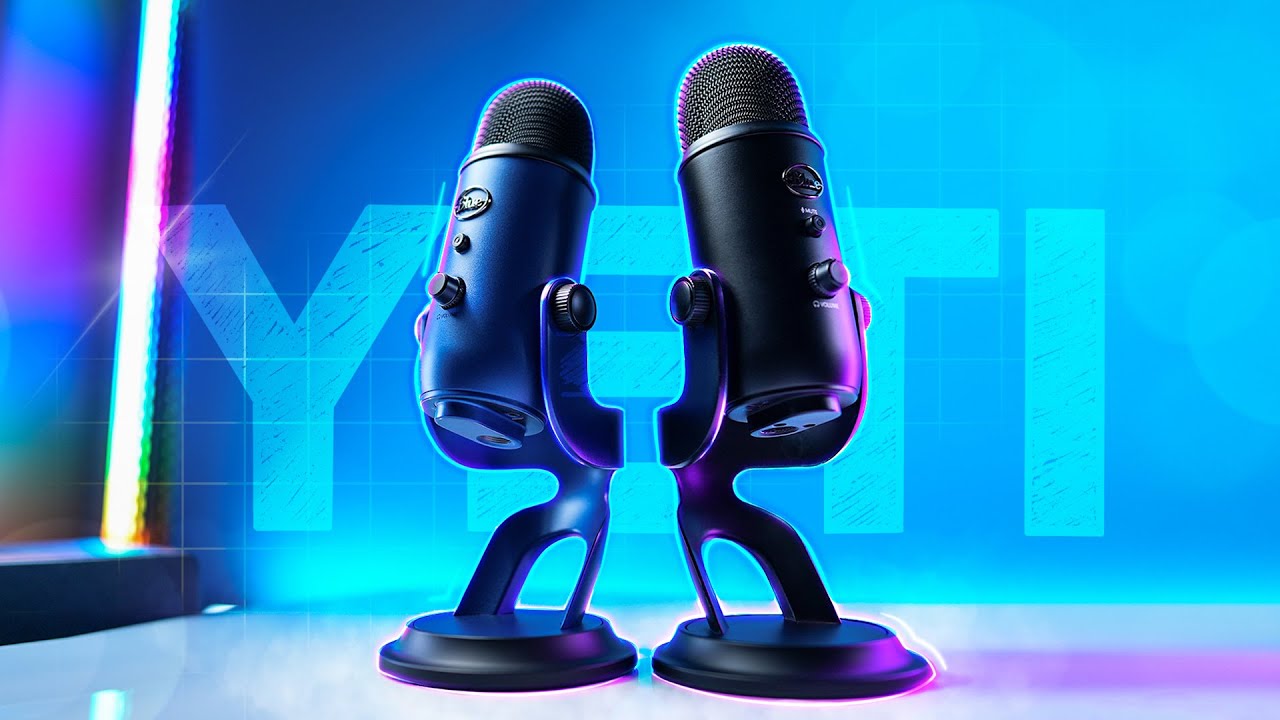Introduction
Welcome to the world of podcasting, where creativity and passion come together to create compelling audio content for listeners around the globe. Podcasting has exploded in popularity over the years, and with its rise, many podcasters are wondering how they can turn their passion into profit.
While podcasting can be a labor of love, it is also a viable platform for generating income. From finding sponsors to implementing advertisement strategies, there are various monetization options available to podcasters. In this article, we will explore some effective ways to make money from your podcast.
Before diving into the different monetization strategies, it’s important to note that building a successful podcast takes time and effort. Consistently producing high-quality content, engaging with your audience, and growing your listener base are crucial steps to ensure the success of your podcast and its monetization potential.
Now let’s explore the various ways you can start making money from your podcast and turn your passion project into a profitable venture.
Finding the Right Sponsorship
One of the most common ways to monetize your podcast is by finding the right sponsorship opportunities. Sponsors are typically companies or brands that align with the content and target audience of your podcast. The key is to choose sponsors that resonate with your listeners and add value to their lives.
To find suitable sponsors, start by conducting market research to identify companies that are relevant to your podcast’s niche. Look for brands that have a similar target audience, as this will increase the chances of creating a successful partnership. Reach out to these companies directly or join podcast sponsorship networks that connect podcasters with potential sponsors.
When approaching sponsors, highlight the unique value that your podcast offers. Emphasize your audience demographics, engagement metrics, and the benefits that sponsors can expect from partnering with your podcast. It’s important to demonstrate how your podcast can provide exposure and drive results for their brand.
When negotiating sponsorship deals, consider the different types of arrangements available. You can opt for pre-rolls, mid-rolls, or post-rolls, where advertisements are placed at the beginning, middle, or end of each episode. Alternatively, you can feature sponsored segments within the content of your episodes, seamlessly integrating the brand into your discussions.
Remember to disclose any sponsored content to maintain transparency with your audience. Honesty and authenticity in your endorsement of sponsored products or services will help build trust with your listeners.
Finding the right sponsorship will not only bring in revenue, but it can also provide opportunities for collaboration and expanding your network. By partnering with sponsors, you may gain access to exclusive resources or events, establishing yourself as an influencer in your podcasting niche.
Implementing Advertisement During the Show
In addition to securing sponsorships, another way to monetize your podcast is by implementing advertisements during the show. This strategy involves inserting short, targeted advertisements within your episodes.
When considering advertisements, it’s important to strike a balance between generating revenue and maintaining a positive listener experience. Too many ads can be off-putting to your audience, so be mindful of the number and placement of ads within your episodes.
One popular approach is to include pre-recorded advertisements at the beginning, middle, or end of your episodes. These ads can be seamlessly integrated into your content, ensuring a smooth transition for your listeners. Make sure to choose products or services that are relevant to your audience and align with your podcast’s theme.
Alternatively, you can opt for live-read advertisements, where you personally endorse products or services during the show. This approach allows for a more organic and personalized ad experience. Keep in mind that it’s essential to maintain transparency and clearly distinguish between regular content and sponsored ads.
In terms of pricing, you can charge advertisers based on the number of downloads, the length of the ad, or a flat rate per episode. Consider the reach and engagement of your podcast when setting your advertising rates.
Another strategy to consider is joining podcast advertising networks or marketplaces. These platforms connect podcasters with advertisers and simplify the process of finding relevant advertisements for your podcast. They handle the backend logistics, such as ad delivery and payment processing, allowing you to focus on creating engaging content.
Remember, the key to successful advertisement implementation is to maintain a balance between generating revenue and providing value to your audience. Keep your listeners’ interests at the forefront of your ad strategy to ensure a positive and engaging podcast experience.
Creating a Paid Subscription Model
If you have a dedicated and engaged audience, implementing a paid subscription model can be a lucrative way to monetize your podcast. This approach involves offering exclusive content or bonus features to subscribers in exchange for a monthly or annual fee.
Before implementing a paid subscription model, it’s important to assess the value you can provide to your subscribers. Consider what unique content or perks you can offer that are not available to your regular listeners. This could include bonus episodes, behind-the-scenes access, early access to new episodes, exclusive interviews, or interactive engagement with the podcast host.
To implement a paid subscription model, you can use platforms specifically designed for podcast monetization. These platforms provide features for hosting, distributing, and managing paid content for your subscribers. They also handle payment processing and provide analytics to track your subscription revenue.
When promoting your paid subscription model, emphasize the benefits that subscribers will receive. Craft compelling marketing messages that highlight the exclusive content and experiences they can access by becoming a subscriber. Consider offering trial periods or special discounts to encourage listeners to sign up.
It’s important to strike a balance between providing enough valuable content to entice subscribers and maintaining a free version of your podcast for those who may not be ready or willing to pay. A successful paid subscription model will offer unique benefits that justify the cost and create a sense of exclusivity for subscribers.
Remember to communicate with your audience and gather feedback on the paid subscription model. This will help you refine your offerings and ensure that you continue to provide value to your subscribers. Regularly evaluate your subscription model’s effectiveness and make adjustments as needed to optimize its performance.
Implementing a paid subscription model can provide a steady source of income while elevating the podcast experience for your most dedicated listeners. With the right content and marketing strategy, this monetization approach can be a win-win for both you and your audience.
Selling Merchandise
Another effective way to monetize your podcast is by selling merchandise related to your brand and podcast. This strategy not only generates revenue but also serves as a way for your listeners to show their support and become ambassadors of your podcast.
When considering merchandise, think about items that resonate with your audience and align with your podcast’s theme. This can include t-shirts, hats, mugs, stickers, or any other products that your listeners would find appealing. Make sure to design eye-catching and unique merchandise that represents your brand effectively.
To streamline the process, you can partner with a print-on-demand service or an e-commerce platform that handles the production, fulfillment, and shipping of your merchandise. This allows you to focus on promoting your products and creating a seamless purchasing experience for your listeners.
When promoting your merchandise, use your podcast episodes and social media platforms to showcase your products. Highlight the value and uniqueness of your merchandise and provide links or codes for listeners to make a purchase. Consider offering special discounts or limited-time promotions to incentivize your audience to buy.
Engaging with your audience is essential when selling merchandise. Encourage your listeners to share photos or videos of themselves using or wearing your merchandise and feature them on your podcast or social media pages. This not only creates a sense of community but also serves as social proof, enticing others to make a purchase as well.
It’s important to regularly assess your merchandise offerings and listen to feedback from your audience. Stay updated on the latest trends and preferences of your target market to ensure that your merchandise remains relevant and appealing. Consider launching new designs or limited-edition items to keep your audience excited and engaged.
By selling merchandise, you not only generate additional income but also strengthen your brand and deepen the connection with your audience. It’s a tangible way for your listeners to support your podcast and showcase their loyalty while spreading the word about your show.
Hosting Live Events and Workshops
Hosting live events and workshops can be a fantastic opportunity to monetize your podcast while connecting with your audience on a more personal level. These events can range from meet-ups and live podcast recordings to workshops and conferences centered around your podcast’s theme.
Live events allow you to bring your podcast to life and create a unique experience for your listeners. They can be held in person or virtually, depending on your audience’s location and preferences. Consider partnering with venues or hosting platforms that align with your podcast’s vision and provide the necessary resources.
When organizing live events, focus on creating a valuable and memorable experience for your attendees. Offer engaging sessions, panel discussions, keynote speakers, and interactive activities related to your podcast’s topic. Provide opportunities for networking and mingling with fellow podcast enthusiasts.
Ticket sales and sponsorships are common revenue streams for live events. Determine a suitable ticket price that covers your costs while remaining affordable for your audience. Offer different ticket tiers that include additional perks such as exclusive access or merchandise.
Collaborating with relevant sponsors can also help fund your events and provide additional benefits to your attendees. Partnerships with companies aligned with your podcast’s theme can provide financial support, in-kind contributions, or promotional opportunities.
Workshops are another excellent way to monetize your podcast and provide value to your audience. These can be one-time or regular sessions where you teach specific skills or provide in-depth knowledge on a particular topic related to your podcast. Participants pay a fee to attend the workshop and gain valuable insights directly from you.
Consider offering a combination package that includes access to both the live event and a workshop, allowing your audience to maximize their experience and learning opportunities.
Utilize your podcast and social media platforms to promote your live events and workshops. Create engaging content that highlights the benefits of attending and shares testimonials from previous participants. Encourage your listeners to spread the word and offer referral incentives to boost attendance rates.
Hosting live events and workshops not only generate revenue but also foster a sense of community and provide an immersive experience for your audience. It allows you to connect with your listeners face-to-face, build lasting relationships, and establish yourself as an authority in your podcasting niche.
Crowdfunding and Donations
Crowdfunding and donations offer a unique way to monetize your podcast by directly engaging your audience and giving them the opportunity to support your work financially. This approach involves reaching out to your listeners and asking for their contributions to help sustain and grow your podcast.
Platforms like Patreon, Kickstarter, and GoFundMe provide a convenient and effective way to set up crowdfunding campaigns. You can offer different donation tiers or levels, with each tier providing various perks and benefits to your supporters. These perks can include exclusive content, early access to episodes, personalized shout-outs, or even the ability to suggest topics for future episodes.
When creating your crowdfunding campaign, it’s important to clearly communicate the purpose and goals of your podcast. Explain to your audience why their support is essential and how their contributions will directly impact the quality and longevity of your podcast. Engage with your listeners, respond to their comments and questions, and show gratitude for their involvement.
In addition to crowdfunding platforms, you can also provide alternative methods for direct donations. This can include setting up a PayPal or Venmo account specifically for your podcast or providing a link to a donation page on your podcast’s website.
Regularly update your listeners on the progress of your crowdfunding campaign and share milestones and achievements. Acknowledge and publicly thank your supporters for their contributions, both individually and collectively. This will create a sense of community and appreciation among your listeners.
Remember to be transparent about how the funds raised will be used, whether it’s to cover production costs, invest in equipment, or expand your podcast’s reach. This will provide reassurance to your audience that their contributions are being utilized responsibly.
Incorporate calls-to-action within your podcast episodes and social media platforms to encourage your audience to donate or contribute to your crowdfunding campaign. Regularly remind your listeners of the benefits of supporting your podcast and the difference they can make in helping you continue to provide valuable content.
Crowdfunding and donations allow you to establish a direct and mutually beneficial relationship with your audience. It not only provides financial support but also deepens their engagement and investment in your podcast’s success.
Affiliate Marketing and Product Recommendations
Affiliate marketing is a popular method for podcasters to monetize their content by promoting products or services and earning a commission on resulting sales. This approach involves partnering with companies as an affiliate and recommending their products or services to your audience.
When choosing affiliate programs, select products or services that align with your podcast’s theme and cater to your audience’s interests and needs. Look for reputable companies with affiliate programs and join their networks or sign up as an individual affiliate. Consider the commission structure, conversion rates, and the value that the products or services provide to your audience.
Integrate affiliate marketing into your podcast episodes by seamlessly incorporating product recommendations and endorsements. Be transparent with your listeners about your affiliate relationships and disclose that you may earn a commission from purchases made through your unique affiliate links.
Focus on providing genuine and valuable product recommendations. Only promote products or services that you have used and believe in. Your audience trusts your opinions and recommendations, so maintain that trust by being selective with your affiliations.
Utilize various platforms to promote your affiliate links, such as your podcast’s website, show notes, social media profiles, and email newsletters. Create engaging content around the products or services you are promoting, highlighting their features, benefits, and how they can solve your audience’s pain points.
Consider offering exclusive discounts or bonuses to incentivize your audience to make purchases through your affiliate links. This can be in the form of special coupon codes or freebies that are only available when using your affiliate links.
Regularly track and analyze the performance of your affiliate marketing efforts. Monitor the clicks, conversions, and commissions generated through your affiliate links. This will help you understand which products resonate with your audience and optimize your promotional strategies accordingly.
Aside from affiliate marketing, companies may approach you for sponsored product reviews or collaborations. When considering these opportunities, ensure that the products or services align with your podcast’s content and values. Provide honest and unbiased reviews, highlighting both the pros and cons to maintain your credibility.
Affiliate marketing and product recommendations provide a win-win situation for both you and your audience. It allows you to monetize your podcast while providing valuable recommendations and solutions to your listeners.
Building Your Brand and Creating Partnership Opportunities
Building a strong brand is essential for effectively monetizing your podcast and creating long-term partnership opportunities. A well-established brand attracts sponsors, advertisers, and potential collaborators who see the value in associating with your podcast.
When it comes to branding, consistency is key. Develop a unique and memorable brand identity that reflects your podcast’s personality and resonates with your target audience. This includes creating a captivating logo, designing visually appealing podcast artwork, and maintaining a cohesive theme across all your marketing materials.
Establish your podcast’s online presence through a dedicated website and active social media channels. Consistently engage with your audience by sharing behind-the-scenes content, promoting upcoming episodes, and responding to comments and messages. This fosters a sense of community and builds trust among your listeners.
Focus on delivering high-quality content consistently. Your podcast episodes should be well-researched, informative, and entertaining. Pay attention to audio quality to ensure a pleasant listening experience. Delivering value to your audience will help build credibility and attract potential partners who recognize your expertise and influence.
Actively seek out partnership opportunities that align with your podcast’s brand and audience. This can include collaborations with other podcasters, guest appearances on relevant shows, or cross-promotion with complementary brands or influencers. Reach out to potential partners and highlight the mutual benefits of collaboration, whether it’s expanding your reach or promoting each other’s content.
Networking is crucial for creating partnership opportunities. Attend industry events, join podcasting communities, and engage with fellow podcasters and influencers. Utilize these connections to explore potential collaborations, discuss sponsorship opportunities, or even co-create content. Building relationships within the podcasting community can open doors to valuable partnership ventures.
Consider participating in industry awards, festivals, and conferences. These events provide exposure, recognition, and networking opportunities with industry professionals and potential partners. Winning or being nominated for awards can also enhance your podcast’s credibility and attract sponsors or advertisers.
Regularly evaluate your branding strategies and partnerships to ensure they align with your podcast’s goals and values. Review audience feedback and metrics to gauge the effectiveness of your brand building efforts. Adjust and refine your approach as needed to stay relevant and appealing to your target audience.
Building a strong brand and establishing partnerships not only increases your podcast’s monetization potential but also solidifies your position as an influential voice in your niche. Stay true to your brand, consistently deliver great content, and be open to collaboration opportunities to maximize your podcast’s success.
Monetizing Your Podcast Archives
Monetizing your podcast archives can be a valuable way to generate income from your existing content. While new episodes may be the primary focus, your podcast’s back catalog can continue to provide value and revenue opportunities.
One way to monetize your podcast archives is by creating a membership website or paid access to exclusive content. Offer a subscription-based model that gives your audience access to your complete archive, including past episodes, bonus content, and exclusive interviews. This provides a premium experience for dedicated fans and adds an additional recurring revenue stream.
Consider repackaging your podcast archives into themed collections or compilation episodes. Create “best of” episodes or curated playlists that showcase your top episodes on specific topics. This adds value by making it easier for new listeners to discover and binge listen to your content.
Another way to monetize your podcast archives is by exploring syndication and licensing opportunities. Reach out to other podcast networks, radio stations, or digital platforms that might be interested in featuring your archived episodes. Negotiate licensing agreements or revenue-sharing deals that allow them to distribute your content to their audience, while you earn royalties or a percentage of the advertising revenue.
Consider creating bite-sized clips or highlights from your archived episodes and sharing them on social media platforms. Use engaging captions and call-to-action links to drive traffic back to your podcast or website, where you can monetize the increased visibility through advertisements or sponsorships.
Transcribing your archived episodes and repurposing them as blog posts or articles can also be a valuable monetization strategy. Use SEO techniques to optimize the content for search engines and incorporate relevant affiliate links or advertisements within the articles.
Additionally, you can explore partnerships with content creators in related industries. Collaborate with bloggers, YouTubers, or influencers who can feature your archived episodes or create supplementary content that complements your podcast. These collaborations can introduce your podcast to new audiences and open up potential revenue-sharing or sponsorship opportunities.
Regularly promote your archived content through email newsletters, social media campaigns, and cross-promotion with other podcasters. Use enticing headlines and snippets to pique the interest of your audience and direct them to access or purchase the archived episodes.
Remember to continually evaluate and analyze the performance of your monetization efforts for your podcast archives. Monitor download rates, engagement metrics, and revenue generated to identify trends and optimize your strategies.
Monetizing your podcast archives allows you to leverage your existing content and maximize the revenue potential of your podcast. By repackaging, syndicating, or licensing your archived episodes, you can continue to monetize your content long after its initial release.

























